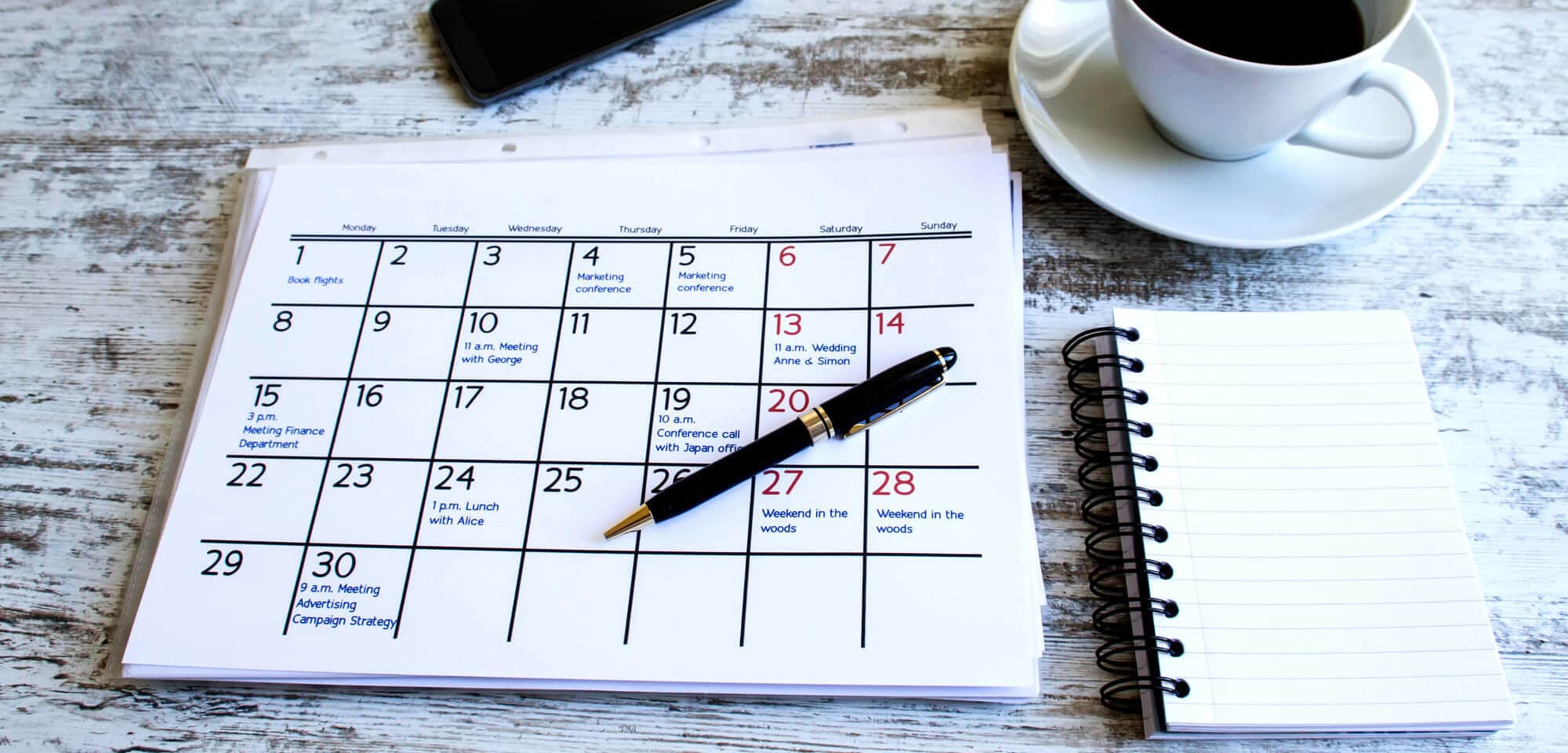
How Daily Planning Will Get You Yearly Results
Have you found yourself feeling stuck? Have you realized you’re not meeting a few of your biggest goals? These feelings can be discouraging and may cause you to lose motivation fast. But what actions can we take to change it? Setting aside time for daily, weekly, and monthly planning will help you get the yearly results you’ve been hoping for. By incorporating this practice into your natural routine, you’ll be able to see every aspect of your life laid out in front of you. Entrepreneurs worldwide utilize organized planning to jumpstart their productivity, minimize stress, and achieve personal and professional goals. What are you waiting for? Let’s get started!
Benefits of Organized Planning
While setting aside time for daily, weekly, and monthly planning may seem like an added task to your already busy schedule, the benefits are endless. Planning is used in numerous scenarios, whether to strategize for a big game, organize a family member’s birthday, or get a new marketing campaign from start to finish successfully. By incorporating organized planning into your life, you’ll begin to recognize change almost immediately as it gives you motivation to succeed and more. Look at a few of the benefits entrepreneurs worldwide have accounted for once they’ve started planning:
- Increased productivity
- Healthier work-life balance
- Improved time management
- Minimized stress
- Risk management
- Progress evaluation
- Realistic goal setting and achievement
- And more
Keep in mind; everyone is different. Your planning strategy isn’t going to be the same as your coworker’s, mom’s, or best friend’s. Finding a planning method that works best for you and your schedule is the way to go. Once you figure out how you’re going to start planning, it’s best to stick to a routine for the first few months, so it soon becomes a habit and a natural part of your schedule.
Daily
Each one of us has a time of day where we’re most productive and engaged. Some feel inspired in the early morning hours, while others find that nighttime sparks creativity. When beginning daily planning, it’s recommended to take a few minutes and identify the time of day you’re most productive as this will help you set aside time to plan. Once you pinpoint this timeframe, whether at the end of your workday, in the morning over coffee or tea, or midafternoon, try setting aside 15 minutes to plan the next day. Practicing daily planning will not only help you organize tasks but will allow you to develop a clear idea of what each day will look like. You’ll likely notice yourself getting a better night’s sleep and being fully invested in every activity, task, and situation your days may present. Below are a few examples of what you should include in your daily planning:
- Reading and responding to emails
- Answering and returning phone calls
- Meetings
- Extracurricular activities
- Available time
- Appointments
- Family events
Weekly
It’s a fact. We all enjoy our weekends as it’s an excellent opportunity to catch up on housework, run a few errands, watch a new movie, or spend time with family and friends. Isn’t it a drag when you realize it’s Sunday? That the dreaded Monday morning and your busy, on-the-go lifestyle will be here before you know it? While it’s probably really tempting to enjoy a hearty Sunday dinner and snuggle in with your favorite book or movie, setting aside 45-60 minutes to plan your week ahead will make a huge difference. Planning each week will help you organize each of your responsibilities and commitments, so your busy schedule is more manageable. It’s not unusual to forget a few critical tasks either, and taking time to reflect on the week ahead will help you avoid this. Setting aside time for weekly planning will make your daily planning go smoothly as you get into the swing of things. Your weekly planning can be viewed as a general overview, while daily planning is a deep dive into the nitty-gritty.
Monthly
So, we’ve gone over daily and weekly planning but let’s continue to zoom out. Before the start of each month, it’s encouraged to set aside 2 to 3 hours to plan for the upcoming month. Monthly planning typically covers most of the bigger stuff, whether that be a big deadline at work, a family vacation, or starting a new workout program. By utilizing a monthly planning strategy, you’ll be able to categorize tasks into each of your key areas and identify where your focus needs to be in the upcoming month. You can even set a few monthly goals to hold yourself accountable and make sure you’re meeting tasks and personal expectations. Monthly planning is effective as it helps you see where you may have extra time and mentally prepare for those busy days or weeks.
Yearly
It’s finally time! Maybe you’ve considered planning your year, or it may seem like a daunting task that’s looming over you. By incorporating daily, weekly, and monthly planning into your routine, yearly planning will soon become simple. As you first start, yearly planning may have to be completed in a few 3-to-4-hour sessions, or setting aside a good chunk of a Saturday or Sunday will be plenty. You can approach your yearly planning in whichever way is most productive for you, such as an inspiring hardcopy personal planner, virtually through Google Calendar, or even through calendar templates in Microsoft Word. Yearly planning is an excellent opportunity for you to plan the year ahead for holidays, work events, and everything in between. You should also set and review your goals for the year and take time to strategize as to how you’ll reach them. Visualizing and manifesting your personal and professional goals will give you motivation, inspiration, and drive to succeed.
It’s Time to Achieve Your Yearly Goals
Developing a new habit takes time – much like cutting a bad habit. However, we’re here to help. To achieve yearly goals, you need to be held accountable for every decision and action you take. Incorporating daily, weekly, and monthly planning will help you see the big picture while practicing a deep dive into your busy schedule. Whether you’ve been feeling unmotivated, overwhelmed, or are yearning for more control over your life, strategizing how you can plan will help you reach those goals that have been left unchecked – plain and simple. Start planning today!

Jennifer Dawn
Author
Jennifer Dawn is a soul-aligned business coach, author, speaker, and the founder of Freedom Builders™ a community where entrepreneurs rise from the inside out.
Coaching Programs

Business Coaching

Accountability Coaching

Profit First & Cash Flow Coaching

Health Coaching
My Recent Articles
Time as a Leadership Practice: Why Productivity Isn’t the Real Problem Soul-Aligned Leadership: Who You Become, Not What You Do Becoming The You Who Reaches The Goal: The Inner Work That Makes Next Year’s Success Inevitable EP. 65: Being Stuck Sucks: How to Get “Freed from Stuck” for Business Owners with Susie Hayes Onboarding for Small Business Success: Train Once, Train RightOne thoughtful email from me each month
Practical insight on mastering your inner world so your business can grow with clarity and ease.







